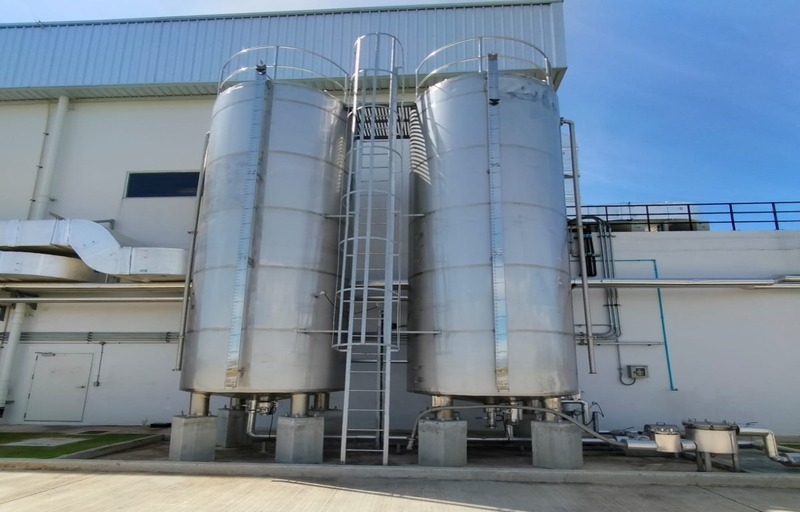-
Send us a mail [email protected]
-
Call us anytime +91-9999884400

Stainless Steel Storage Tanks, popularly known as SS Storage Tanks, are essential for industries that require safe, hygienic, and durable storage for liquids, chemicals, and other fluids. These tanks are highly corrosion-resistant, easy to maintain, and built to last, making them ideal for industrial operations. Times Automation is a leading manufacturer of SS Storage Tanks in India, offering customized solutions for various industrial applications.
Understanding SS Storage Tanks
SS Storage Tanks are manufactured using high-quality stainless steel such as SS 304 and SS 316, ensuring long-lasting durability and resistance to corrosion and contamination. These tanks are widely used in industries where safe storage of liquids and chemicals is critical. They provide a reliable solution for chemical storage, food & beverage processing, pharmaceuticals, and water treatment plants.
1. Vertical SS Storage Tanks
Vertical tanks are cylindrical storage units designed to save floor space while providing large capacity. They are ideal for chemical storage, water treatment, and beverage industries. Times Automation manufactures vertical SS tanks in capacities ranging from 500 liters to 50,000 liters.
2. Horizontal SS Storage Tanks
Horizontal tanks are compact and easy to install, making them suitable for industries with limited space. These tanks are commonly used in sugar plants, oil storage, and beverage industries. Times Automation provides horizontal SS tanks built for durability and industrial efficiency.
3. Jacketed SS Storage Tanks
Jacketed tanks feature an external layer that allows for heating or cooling of the contents. They are widely used in chemical, food, and dairy industries where temperature control is essential. Times Automation custom-builds jacketed tanks to maintain precise temperature control.
4. Insulated SS Storage Tanks
Insulated tanks help maintain the temperature of liquids, ensuring minimal heat loss and preventing contamination. These are commonly used in pharmaceutical, beverage, and sugar processing industries. Times Automation designs insulated tanks based on client-specific temperature and capacity requirements.
5. Mobile/Portable SS Storage Tanks
Mobile or portable tanks are designed for temporary storage and easy transportation within industrial facilities. These tanks are used in food, pharmaceutical, and chemical industries for batch processing or temporary storage solutions. Times Automation produces robust portable tanks with secure fittings for safe transport.
Chemical Industry – Stores reactive and corrosive chemicals safely with corrosion-resistant SS tanks.
Pharmaceutical Industry – Maintains hygiene standards for storing medicinal liquids and solvents.
Food & Beverage Industry – Safe storage for syrups, juices, and other consumable liquids.
Oil & Gas Industry – Stores fuels, lubricants, and hydrocarbons safely under industrial conditions.
Water Treatment & Utilities – Reliable tanks for treated water, chemicals, and industrial liquids.
Sugar & Beverage Processing – Efficient handling and storage of syrups and liquid sugar.
SS Storage Tanks are highly versatile and can be used for multiple industrial purposes:
Chemical Storage: Corrosion-resistant SS tanks safely store acids, alkalis, and other chemicals without risk of contamination or chemical reactions.
Pharmaceutical Industry: SS tanks store medicinal liquids, solvents, and intermediates, maintaining hygiene and purity.
Food & Beverage Industry: Syrups, edible oils, juices, and other liquid consumables are stored safely in stainless steel tanks that prevent contamination.
Water Treatment Plants: Treated water, chemicals, and other liquids are stored securely in SS tanks, ensuring durability and minimal maintenance.
Oil & Gas Industry: SS tanks store fuels, lubricants, and hydrocarbons safely under industrial conditions.
Sugar Processing Plants: Liquid sugar, syrups, and other products are stored in hygienic and temperature-controlled stainless steel tanks.
Durable construction capable of withstanding industrial usage.
Corrosion resistance ensures longevity and minimal maintenance.
Hygienic storage suitable for food, beverage, and pharmaceutical industries.
Customizable tanks for specific capacity, temperature, and industrial requirements.
High-quality materials ensure safe, efficient, and reliable storage solutions.
Selecting the right SS Storage Tanks depends on several factors:
Material Grade: SS 304 is suitable for general industrial use, while SS 316 is preferred for chemical, pharmaceutical, and food industries due to higher corrosion resistance.
Capacity: Choose a tank size that meets current storage needs while allowing future scalability.
Temperature Requirements: For heating or cooling, consider jacketed or insulated tanks.
Application: Identify whether the tank is for chemical storage, water treatment, food processing, or transport to select the appropriate design.
Times Automation offers expert guidance to help industries select the perfect SS Storage Tank tailored to their needs.
Regular cleaning with non-abrasive cleaners to maintain hygiene.
Periodic inspection for leaks or corrosion, especially at weld joints and fittings.
Proper handling and storage to prevent mechanical damage.
Ensure compatibility of stored liquids with the stainless steel grade used.
Proper maintenance extends the lifespan of SS tanks and ensures safe storage of liquids.
FAQs
1. What are SS Storage Tanks used for?
SS Storage Tanks are used to store liquids, chemicals, and gases safely in chemical, pharmaceutical, food & beverage, and water treatment industries.
2. What materials are used in SS Storage Tanks?
High-grade stainless steel, mainly SS 304 and SS 316, is used for corrosion resistance, durability, and hygienic storage.
3. Can SS Storage Tanks be customized?
Yes, Times Automation provides customized tanks tailored to capacity, temperature, and industry-specific requirements.
4. Are SS Storage Tanks safe for food and pharmaceuticals?
Absolutely. Stainless steel ensures hygiene, prevents contamination, and maintains liquid quality.
5. Which industries in India commonly use SS Storage Tanks?
Chemical, pharmaceutical, food & beverage, oil & gas, water treatment, and sugar processing industries extensively use SS Storage Tanks.
